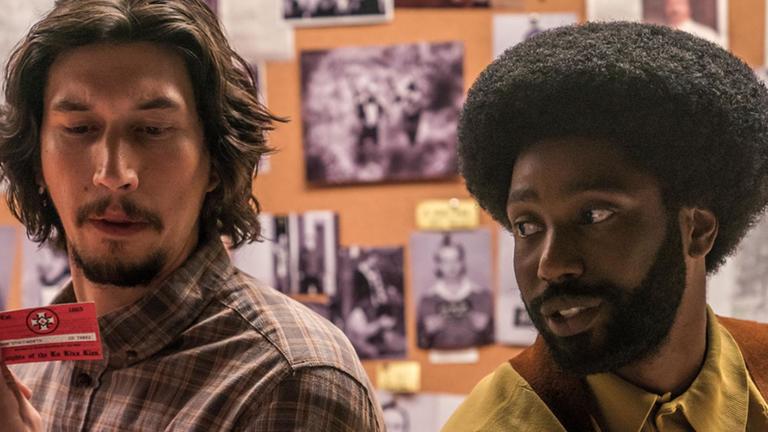Following the true story of a black man infiltrating the Ku Klux Klan in the 1970s, BlackkKlansman is an offensive, in-your-face, and unflinching depiction of racism and fanatical politics.
It’s constant parallelisms to Trump alongside the hopeful naiveté of the main character pull together every strand of hatred and discrimination that is running through our society today and shoves it, angrily, in front of our noses as hard as possible. “This is what was happening forty years ago!” it shouts, “how is it still the same?” it begs. Regardless of the obvious 1970s decade markers (note the slick hair, fashion, and repetitive musical riffs), it feels difficult at times not to blur the lines between what we’re seeing on the screen and what we witness daily outside of the cinema.
The angry political rhetoric, however, is salted through with the tongue-in-cheek humour reminiscent of Jordan Peele’s (assisting producer) comedy sketches. The opening scenes are not dissimilar to Peele and Keegan-Michael Key’s Negrotown: a sketch which openly addresses the dangers people of colour face when merely walking through the street. This humour sustains a sheen of entertainment (and, at times, enjoyment) over Spike Lee’s production: strengthening our attachments to the few main characters we are guided to root for, and allowing moments of tenderness to shine through.
Every detail about this film feels as though it has been carefully considered, tweaked, and considered once more: every hair is perfectly placed; every accent is fantastically and believably toned; every piece of dialogue casually powerful. This film has been pushed and pushed and pushed to become the masterpiece that it is: the plot is gripping and scarily translatable; the character progression is incredibly believable and tightly wound; and each word has been thoughtfully, rhythmically and dynamically crafted together.
Altogether, this is the most powerful piece of cinema I have ever witnessed, and it cannot be stressed heavily enough how much this needs to be watched by as wide an audience as possible. If you don’t believe that the immensity of the social climate and hatred that is so tightly gripping our world today affects you, watch this. Watch this, get angry, and make a change.
Emily Moscrop

